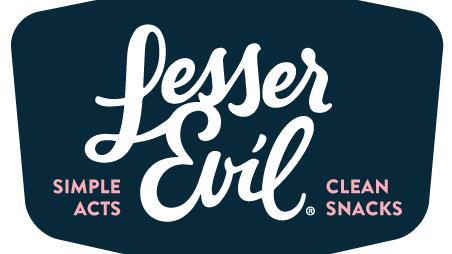Charles Coristine, a 52-year-old former Wall Street executive, took a significant risk that most would never imagine. He left his career in finance to take over an organic snack company called LesserEvil. He purchased the struggling company in 2011 for $250,000 using his savings. And while he knew next to nothing about the food industry, the brand is now thriving with $103 million in annual revenue and poised to hit $165 million this year.
Don’t Miss:
How It Started
Coristine wasn’t happy with his path in life. After 17 years in finance, he started feeling anxious and burnt out. He wanted a new path. He was working crazy hours to trade all day in the U.S. and then trade with Tokyo and London all night. “I felt like I wasn’t in my skin, I was anxious, and I knew at that point that I needed to take some time off,” Coristine said.
In 2009, he stepped back and enrolled in an MBA program at Cornell University. In 2010, he met LesserEvil’s previous owner, who wanted to sell the company. Despite little knowledge of the food industry, Coristine saw potential in the brand and leapt.
Trending: A billion-dollar investment strategy with minimums as low as $10 — you can become part of the next big real estate boom today.
Building LesserEvil
When Coristine purchased LesserEvil, the company generated about $900,000 in annual revenue, which wasn’t profitable considering the personnel, machinery, and materials needed to keep up with production.
“It just didn’t have enough in sales,” Coristine said. “I mean, to cover salaries and office space and the copackers – copackers take like 20%. I think the big thing was trying to change the packaging. At the end of the day, if the product is selling well, I think they like the packaging. This product was not selling that well.”
Trending: If there was a new fund backed by Jeff Bezos offering a 7-9% target yield with monthly dividends would you invest in it?
Coristine partnered with Andrew Strife, a business school friend, to focus on improving product quality and rebranding. In 2013, they acquired a 5,000-square-foot factory in Danbury, Connecticut, which gave them more space and control to produce better snacks.
They had a breakthrough when they tested coconut oil with their popcorn. It gave the popcorn a buttery flavor without needing traditional and less healthy oils. This breakthrough launched a new product: Himalayan Pink popcorn. By 2014, the new popcorn helped generate $2 million in sales.
Trending: These five entrepreneurs are worth $223 billion – they all believe in one platform that offers a 7-9% target yield with monthly dividends
Scaling Up
LesserEvil’s popularity continued to grow with its new products and branding, to the point that it needed to expand by renting a 20,000-square-foot facility to keep up with demand. Major retailers like Whole Foods, Costco and Walmart now sell LesserEvil products nationwide.
In 2023, the company hit $103 million in sales. In 2024, they secured a $19 million round of funding to buy out prior investors and opened a new 30,000-square-foot factory. This year, they are on track to hit $165 million in sales.
Today, LesserEvil is more than just a snack company; it symbolizes how passion and a willingness to take risks can lead to great success. Coristine believes that the company’s focus on making better, healthier versions of mainstream snacks has been a key factor for their growth. “We’ve got a really bright future, and I think that we could be around for a long time,” Coristine said.
Are you looking to make a significant financial change? Consider talking with a financial advisor to help outline your current financial strategy and get a realistic view of your options.
Read Next:
Up Next: Transform your trading with Benzinga Edge’s one-of-a-kind market trade ideas and tools. Click now to access unique insights that can set you ahead in today’s competitive market.
Get the latest stock analysis from Benzinga?
This article From Wall Street To Snack Success: How Charles Coristine Turned LesserEvil From A $250,000 Gamble Into A $103 Million Brand originally appeared on Benzinga.com
© 2024 Benzinga.com. Benzinga does not provide investment advice. All rights reserved.
Read the full article here

